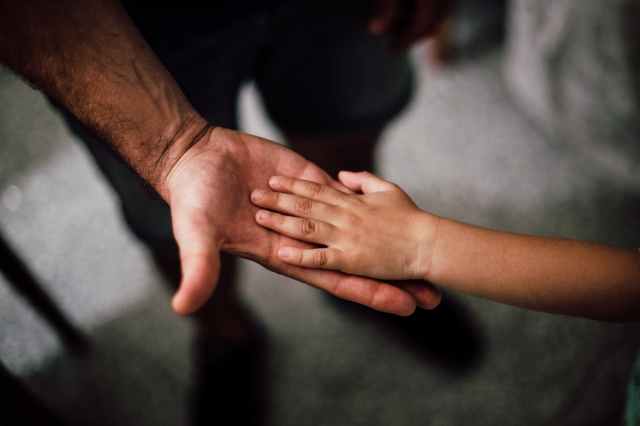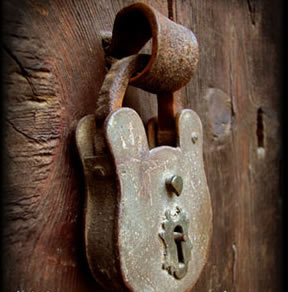In Luke 17:5 we enter into the text as the disciples approach Jesus saying: “Increase our faith!”
The exclamation point is telling. It conveys a sense of urgency. The punctuation alerts us to the fact that this is not your ordinary, run of the mill request. No there’s much more going on here. Jesus’ closest followers, the chosen ones accompanying Jesus on his journey to Jerusalem, PETITION, PLEAD, — DEMAND — that Jesus increase their faith.
In response, Jesus declares: “If you had faith the size of a mustard seed, you could say to this mulberry tree, ‘Be uprooted and planted in the sea,’ and it would obey you.” [17:6]
So where does this leave all of us?
“If you had faith the size of a mustard seed, you could say to this mulberry tree, ‘Be uprooted and planted in the sea,’ and it would obey you.” [17:6]
No wonder the apostles cried out, “Increase our faith!” Theirs was a heartfelt plea of longing that many of us can relate to. For there are times when even the most faithful disciples struggle. Times when we question, doubt, and tell ourselves: If only my faith was stronger. If only I prayed harder. If only I believed more.
IF ONLY … THEN.
Then God would answer my prayers. Then my sick loved ones would be cured. Then my broken relationships would be restored.
IF ONLY … THEN.
In the midst of all of this, we run the risk of turning our faith into another form of works righteousness. Deluding ourselves into believing that we are the ones in control. Deceiving ourselves into believing that IF we say or do the right thing, THEN.
THEN our faith will increase. THEN God will reward me. THEN God will love me.
All of which begs the question: “What is faith?” Or, to put it another way, “What does faith look like?”
Many of you are familiar with the hymn, It is Well with My Soul. The lyrics to this beloved hymn were written by Horatio Spafford in the midst of great financial and personal loss. It all started with the Great Chicago Fire of 1871. Spafford, who had invested heavily in real estate at the time, lost a fortune. About the same time, Spafford’s 4-year-old son died of scarlet fever. Later, Spafford, made arrangements for the family to travel to England together to attend an evangelical Christian gathering. When an urgent matter delayed Spafford, he sent his wife Anna and the couple’s four daughters ahead of him. During the Atlantic crossing, the passenger liner collided with another vessel. The 226 fatalities included Spafford’s 4 daughters. Mrs. Spafford was found nearly unconscious, clinging to a piece of wreckage. After arriving in Wales, she cabled her husband with the news: “Saved. Alone.”
The grieving husband immediately booked passage to join his wife. En route, while standing on the deck one night, the captain pulled Spafford aside and said, “I believe we are now passing over the spot where the ship went down.”
After returning to his cabin, Spafford was agitated. Unable to sleep, he wrote: “It is well; the will of God be done.” The grieving father later wrote his famous hymn based on those words (See Robert J. Morgan, Then Sings My Soul, p. 185).
In Habakkuk 2:4 the prophet proclaims, the “righteous live by their faith.” The statement is a response to the prophet’s repeated petitions for help. A time when the prophet calls upon the Lord to save God’s people from violence, destruction, strife, and injustice. In the midst of God’s seeming inaction, the prophet desperately prays for God to save God’s people.
To which God responds, telling the prophet to wait for the vision that is coming. And to write the vision down so it can be proclaimed to every village. Until the time of salvation, the righteous will live by their faith.
In the next chapter, the text describes what righteous faith looks like. It’s a faith that trusts in God’s promise of salvation and deliverance, even in the face of God’s seeming absence.
The prophet Habakkuk declares, I will praise God even when… The fig tree does not blossom. There is no fruit on the vines. The produce of olives fails and the fields yield no food. The flock is cut off from the fold and there is no herd in the stalls. Even then, “I will rejoice in the Lord, I will exult in the God of my salvation” (3:18).
Habakkuk’s faith-filled proclamation is a demonstration that faith trusts. To put it another way, faith is a response to a promise in a relationship. Faith trusts that God desires to be in relationship with us so much that God does the unthinkable. Coming to us in the form of a servant. Suffering crucifixion and death – utter folly and nonsense in the eyes of the wise and powerful. In order that you and I might live.
Faith clings to the promise that God does not abandon or forsake us; especially in the midst of our struggles, suffering, and loss. Faith receives the gift of grace freely offered to us in Jesus Christ. And to strengthen us in faith, Jesus entrusts to us the means of grace, Word and Sacrament. Working faith in us through the Holy Spirit in the hearing of God’s word proclaimed. Restoring us to a right relationship with God in the sacrament of Holy Communion. Claiming us as God’s beloved children in the waters of Holy Baptism.
Notice–all of this justifying, transforming, life-giving activity is God’s doing, not ours.
Beloved siblings in Christ, faith is not the absence of doubt. Faith is a relationship of trust grounded in God’s saving promises. Sometimes we cling to this trust by only the thinnest of threads. And trust in God is sufficient.
For it’s not about the quantity of our faith. It’s all about who God is and what God in Christ through the Spirit’s power, has done, is doing, and will do for you and me, and for the world God loves enough to save.
“When sorrows, like sea billows roll; whatever my lot, Thou has taught me to say, ‘it is well, it is well with my soul.’”

Photo by Virendra Verma on Pexels.com






 On this, the second Sunday of Easter, I suspect many of you long for peace. A release from fear, anxiety, worry, and the other emotions that have taken hold in the last few weeks as the Covid-19 pandemic rages all around us. In the midst of everything that has happened lately — the closure of school buildings, the implementation of physical distancing requirements, and an Easter holiday without the familiar presence of loved ones and dear family friends — many have found comfort in favorite Bible passages. In John 14:27 Jesus tells his disciples shortly before his crucifixion and death:
On this, the second Sunday of Easter, I suspect many of you long for peace. A release from fear, anxiety, worry, and the other emotions that have taken hold in the last few weeks as the Covid-19 pandemic rages all around us. In the midst of everything that has happened lately — the closure of school buildings, the implementation of physical distancing requirements, and an Easter holiday without the familiar presence of loved ones and dear family friends — many have found comfort in favorite Bible passages. In John 14:27 Jesus tells his disciples shortly before his crucifixion and death: